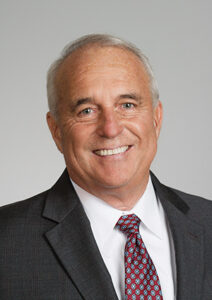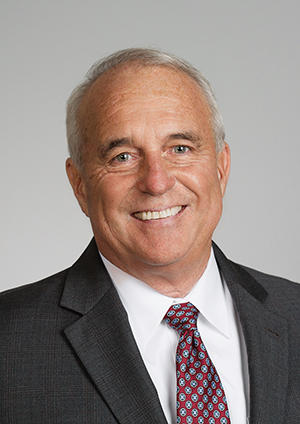
Home » WSDA fills food pantries with farmer-grown products
WSDA fills food pantries with farmer-grown products

June 15, 2021

By Derek Sandison
Director, Washington State Department of Agriculture
As we reach the midway mark of 2021, many of the adjustments made in response to the coronavirus pandemic appear likely to remain with us for some time, from ongoing public health measures, teleworking for many workers who used to report to offices and efforts to recover from a financially devastating year.
The pandemic prompted the Washington State Department of Agriculture (WSDA) to boost its work in food assistance, find new ways to assist struggling farm operations and other agriculture businesses and keep a close eye on the volatile international market.
But we also had our customary body of work to maintain, supporting Washington agriculture.
Feeding the hungry
For more than a decade, WSDA has had a food assistance program, providing both food and funding to contractors around the state, who in turn distribute food directly to those in need.
Before Covid-19 struck, it was estimated that one in every six Washington residents sought assistance from a local food bank. In 2020, that number almost doubled, reaching an estimated peak of 2.2 million Washington residents at risk of going hungry.
While food banks saw a huge increase in need, donations of food dropped as much as 50% during the first peak of the virus.
WSDA responded by working to secure more than $75 million in state and federal dollars for food assistance and supporting philanthropic organizations that raised another $10 million.
WSDA worked with nonprofits and government agencies and tapped our own emergency funds to buy food, personal protective equipment and everything from paper boxes to refrigerators to help ensure that food assistance continued to flow.
This work was recognized during the 2021 legislative session with lawmakers providing almost $80 million in new funding for WSDA over the biennium to help expand food assistance capabilities.
Some of this money will help augment existing programs, like our Farm to Food Pantry project, which connects local farmers with food banks seeking fresh produce for their pantries.
Some of the funds will pay for new initiatives, such as the development of a state-led alternative to the USDA’s Farmers to Families food box program.
This new program will prioritize procuring food from Washington’s farmers, fishers and food processors to boost regional economies while coordinating distribution to families through a network of established hunger relief organizations and a new crop of innovative programs that have emerged in response to Covid-19.
This new funding ensures WSDA will continue to play a significant role in making sure no one goes hungry in Washington state, while also providing farmers with new markets for their products.
Trade
Washington is a trade dependent state. Overseas markets are vital for Washington agriculture, which exports much of what it grows to customers around the world.
This is why WSDA keeps such a close eye on the international landscape. It is also why I agreed to chair the marketing and international trade committee of the National Association of State Departments of Agriculture (NASDA).
But commodity groups and ag businesses that depend on overseas customers have had some rough years recently. Even before the pandemic struck, disputes with some of our biggest trading partners, like China and India, caused turmoil in the international marketplace.
These disputes and the tariffs many countries imposed in retaliation for tariffs the U.S. imposed, hit Washington exporters hard. Ag exports to China decreased 42% from 2017-19.
The Covid-19 pandemic made things even tougher for ag businesses, with exporters among the first to feel the effects of the pandemic as countries in Asia closed ports or placed public health restrictions on their citizens that meant little to no work done at the ports.
While retail demand returned, the food service industry has been much slower to reopen. Exporters of products into this sector continue to face significant financial losses.
As markets have begun opening, Washington agriculture companies continue to face difficulties getting their products into international markets.
One factor is that shipping firms have cut back or even stopped carrying our products to these export markets. Instead, ships delivering imported goods to Washington have headed for home to retrieve yet more goods for U.S. consumers, without waiting to load agriculture products bound for export. Container shortages, port congestion and unreasonable ocean carrier fees are making matters worse.
This remains an ongoing problem that has drawn the attention of our congressional representatives. WSDA will continue to monitor developments like this and work with businesses to find new markets for their products through the work of our International Marketing Program.
Soil health
While the pandemic pushed WSDA to work in new areas or just expand what we had been doing, the agency continued working on other issues of concern for agriculture, such as soil health, the foundation of agriculture viability.
In 2020, WSDA’s Natural Resources Assessment Section began work on a soil health initiative, joining Washington State University and the Washington State Conservation Commission (WSCC) on a long-term effort to address soil health concerns across the state.
Washington has a diverse climate and in some parts of the state, soil health is threatened – from drought, over tillage, compaction or erosion, just to name a few of stressors on the health of our soil. Good, healthy soil retains water better, provides more nutrients for growing plants and is better for the environment as well as beneficial to farmers.
One goal of the soil health initiative is for the three agencies – WSU, WSDA and WSCC – to collaborate on research and the development of demonstration projects with farmers and commodity groups. Then, use what has been learned to promote education on how to improve soil health and the practices most likely to improve key components of our soil.
The pandemic made in-person planning and discussion impossible, but the organizations still managed to work together extensively on this effort through conference calls and virtual meetings.
One task for WSDA was to bring a soil scientist on board, hiring Dani Gelardi this spring as the soil health initiative soil scientist to lead the multi-agency and agriculture industry effort. She has extensive experience with on-farm research, working with farmers, grant writing and management and began working at WSDA while completing her doctorate in soils and biogeochemistry with an emphasis in soil health.
The year ahead promises to be an active year in Washington agriculture and WSDA remains committed to its mission of supporting agriculture and serving the public.
Derek Sandison is director of the Washington State Department of Agriculture.
Focus Magazine Agriculture + Viticulture
KEYWORDS june 2021





